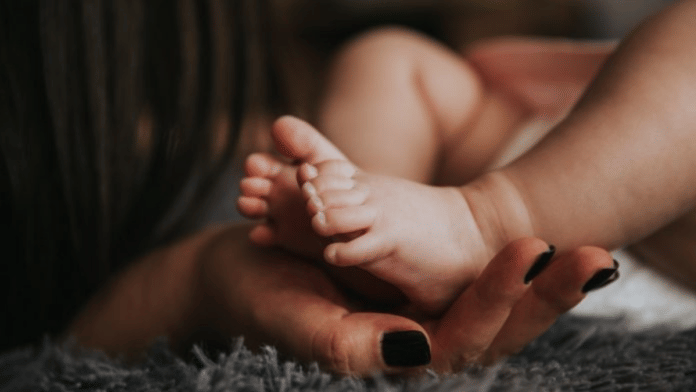Thank you dear subscribers, we are overwhelmed with your response.
Your Turn is a unique section from ThePrint featuring points of view from its subscribers. If you are a subscriber, have a point of view, please send it to us. If not, do subscribe here: https://theprint.in/
In 2024, six maternal deaths were reported in Kerala during home deliveries — one due to homicide, two by suicide, and three in a landslide. In Malappuram alone, 253 home births were reported in 2023–24, and 155 more followed until January 2025. Tamil Nadu reported at least 25 maternal deaths in the last five years due to unassisted home births, including a recent case in Kundrathur where a man delivered his own child at home, inspired by a WhatsApp group with over 1,000 members promoting anti-hospital beliefs. These are not isolated incidents. They reflect a growing underground movement: a mix of mistrust in institutional healthcare, fear of unnecessary C-sections, and misinformation circulating in closed social media communities.
But more concerning is that the Indian legal system has no clear answer to this. There is no law to stop an untrained person from conducting a birth at home. No law to prevent a mother from risking her own life in a setting without medical aid. And no dedicated provision to prosecute someone until — and only if — a tragedy occurs. India has one of the largest maternal healthcare networks in the world, and yet it is legally powerless to prevent what public health officials now call “avoidable deaths in plain sight.”
Here’s what the law — and its gaps — currently look like when it comes to home births:
- Home births are not illegal in India. A woman can legally choose to deliver at home, with or without skilled assistance. No law prevents it.
- There is also no regulatory framework for home births. The Ministry of Health and Family Welfare promotes institutional deliveries, but the National Health Mission guidelines are not enforceable laws. They only recommend — not mandate — that all births happen in facilities with trained personnel.
- The Clinical Establishments (Registration and Regulation) Act, 2010, applies only to registered medical facilities. It cannot be used to penalize someone conducting a delivery at home — unless they falsely claim to be a clinic or licensed service.
- Section 304A of the Indian Penal Code — causing death by negligence — can be invoked if a maternal death occurs due to reckless handling during a home birth. This was seen in the 2019 Delhi case where an unqualified midwife was arrested after a woman died in labour. But this is a general law, not tailored for maternal healthcare, and rarely results in strong convictions.
- The National Nursing and Midwifery Commission Act, 2023, bars unlicensed individuals from practicing as midwives. If someone claims to be a professional and conducts a home birth without registration, they can face jail time or fines up to ₹5 lakh. However, this doesn’t apply to a husband, neighbour, or spiritual guru attending the delivery — unless they’re pretending to be certified.
- The Kerala High Court, in 2024, asked the state health director to submit an explanation regarding a maternal death during a home birth. Kerala’s health minister publicly said, “Refusing hospital care should be treated as homicide.” But that remains an opinion, not law. There is still no statute that criminalizes refusing care to a pregnant woman — even if it results in death.
- Juvenile Justice laws may apply in case a baby dies due to negligence during birth, but these are rarely used and do not address maternal safety.
- No law exists to regulate online communities or influencers who promote home births and anti-hospital rhetoric. In Tamil Nadu, one such group directly influenced a couple to deliver at home. Police were informed — but could not act.
This legal vacuum has put public health workers in a bind. ASHAs and junior public health nurses are often aware of home births happening in their areas. But without a law to stop them, they can only advise, not intervene. In some districts of Kerala and Tamil Nadu, awareness campaigns have helped — but the trend persists, especially among educated, urban families drawn to the idea of ‘natural birth’ without recognizing the risks.
The maternal mortality ratio in India has dropped steadily to 93 per 100,000 live births. This is a win. But this average masks a disturbing truth — that the deaths which do occur are often entirely preventable, and increasingly happening outside the system. No oversight. No documentation. No consequence.
It’s time India introduced a Maternal Birth Accountability Framework — not to criminalize women’s choices, but to regulate birth attendance standards, protect newborns, and hold individuals responsible when fatal negligence occurs. A law that mandates skilled supervision, classifies unassisted delivery as medical risk, and penalizes willful denial of care would go a long way in protecting lives.
Until then, more women will continue to die — quietly, at home — and no one will be answerable.
All data and cases referenced are from the sources:
- Kerala DHS Fact Sheet – Maternal Deaths 2024
- TOI: Battling Home Births in Malappuram
- The Federal: Home Births Gaining Ground
- The New Indian Express: No Law to Penalise Home Births
- TOI: Kerala HC Seeks Report on Home Delivery Death
- [Clinical Establishments Act, 2010 — GoI]
- [National Nursing and Midwifery Commission Act, 2023 — Gazette of India]
These pieces are being published as they have been received – they have not been edited/fact-checked by ThePrint.


